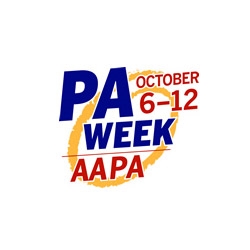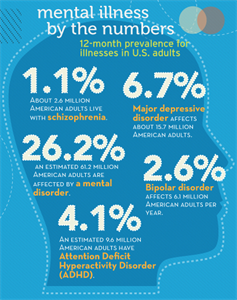National Physicians Assistant Week on October, 2024: is P.A. or physician assistant already have a degree or is certified?
National Physicians Assistant Week 2024. HAVE YOU HUGGED A PA TODAY? VSI CELEBRATES NATIONAL PHYSICIAN ... PHYSICIAN ASSISTANTS WEEK
As an Amazon Associate I earn from qualifying purchases.

A P.A. is not an M.D. They are a physicians assistant. They can prescribe meds.
MEDICAL COMPETENCY: First and foremost PAs are trained in the same medical model as are physicians. This training exposes them to all areas of medicine in a condensed time frame-training is roughly two-thirds the length of medical school with 108 weeks of general primary care education. PAs then in practice, enhance their chosen specialty in a structured residency program and/or hand in hand with their physician colleagues. PAs must also pass national certification boards and recertify every six years. In many cases PAs who are in practice for years bring their patients a level of experience and care that often exceeds that of medical residents and less experienced physicians.
PHYSICIAN ASSISTANTs: Are rigorously medically trained and are licensed medical professionals as advanced medical providers who establish and build a medical practice diagnosing and treating their own patient roster, serving in a variety of clinical settings, such as specialists in Cardiac care, Orthopaedics and Sports medicine, Pediatrics, Internal Medicine, Emergency Medicine, Occupational Health, Pulmonary Care, Neurology, Gastroentology, Neonatology, Family Medicine, Urology, Obstetrics and Gynecology, in primary care practices, geriatric long-term care facilities, hospitals, correctional institutions, Federal and community-based clinics. In short, PAs are trained and certified advanced medical practitioners giving complete and outstanding patient care.
DEGREES OF AUTONOMY: Physician Assistants are generally excellent team builders respecting the limits of their consulting Physician's medical professional relationships and state laws. It's vitally important that the PA and MD are similar in their team approach! This successful continuum includes Physician Assistants practicing significant autonomy in their medical practice, exclusive of a physician's presence, while other PAs want a much closer professional relationship with a consulting MD who is more, often than not, physically present for practical direction and oversight.

Physician assistant questions?
Get a bachelors degree in a pre-med science major, apply to the masters PA program. Some may require experience, so you may have to do something else first for a year or two. PAs work in all fields & specialties of medicine so hours & duties vary vastly. The salary mean is about $82,000. Pas usually start out fairly high & plateau (much more after the top level & it is easier to hire a doc), but other perks are available (paid CME, paid DEA license, etc). It is a very competitive field to get into. the national web site is a place you can start: aapa.org. From there, just google PAs. keep in mind: you are practicing medicine.

What did Physician Assistant School felt like, for someone who took the 2 year program (usually 8-5 m-f) ?
Competition is tough: Nurses, emergency medical technicians (EMTs), and paramedics most commonly apply to PA programs in order to become certified physician assistants. The typical applicant to a PA program has a bachelor’s degree (they also need to have followed a premed track as an undergraduate) and more than four years of health care experience. For those interested in becoming PAs but who haven’t followed the traditional science route in college, a post-baccalaureate program may be the answer. Many universities have programs where students can take all the undergraduate sciences courses in one post-baccalaureate program. Because PAs are going to be in a close working relationship with physicians, they are educated in a medical model designed to complement physician training. Once candidates have been accepted to a PA program the average curriculum stretches over 108 weeks of intensive medical study, compared with 153 weeks for medical school. During that time PA students will be sharing many classes and rotations in clinical medicine with medical students who are going for an M.D., and the work is stressful and difficult. The education itself consists of classroom and laboratory instruction in basic medical and behavioral sciences (such as anatomy, pharmacology, and clinical medicine), followed by rotations in internal medicine, family medicine, surgery, pediatrics, obstetrics and gynecology, emergency medicine, and geriatric medicine. After completing the coursework required in a PA program, graduates still have to pass a national certification exam. Graduation from an accredited physician assistant program and passage of the certifying exam are required for state licensure. All that and they still aren’t done. PAs are required to take ongoing medical education classes (at least 100 hours of classroom time every two years) and must retake the certification test every six years to maintain their national certification.
In the early years of their careers, PAs will still be on a learning curve, gaining valuable experience in techniques for dealing with patients and the intricacies of applied medicine. They will also be discovering fields they might want to specialize in as their careers continue. As with most professions, incomes for PAs tend to increase with years of experience, but it is important to note that larger increases in income tend to come near the beginning of a PA’s career. In a 1997 report on PA salaries, those with one to three years of experience saw their income increase an average of 4.4 percent. PAs also won’t have the same potentially immense debt that medical students will have accrued, making their dollars stretch farther.
As the profession requires, PAs will have had an ongoing medical education throughout their career and by five years out should be approaching the time where they will have to take the certification exam a second time to keep their licenses. At this point, many PAs have had enough hands-on experience (hopefully backed up with good old-fashioned book learning) that they can now specialize. A PA’s specialty has a significant impact on earnings. Currently, the highest paid PA specialists are in surgical subspecialties (earning $70,000 or more). Many may also find themselves managing other PAs. They have experience and are enjoying the benefits of managerial status.
An experienced PA, whether a specialist in emergency medicine or in general pediatrics, is a valuable PA, and his income will reflect this. Without a doubt, PAs can act in a managerial capacity for any health care organization that employs PAs and would also be a valued asset to any private practice. In short, PAs are a commodity in demand and in whatever way they are pursuing their career, most PAs will be in a good position, both in terms of choosing where to work and the remuneration they can expect.



















